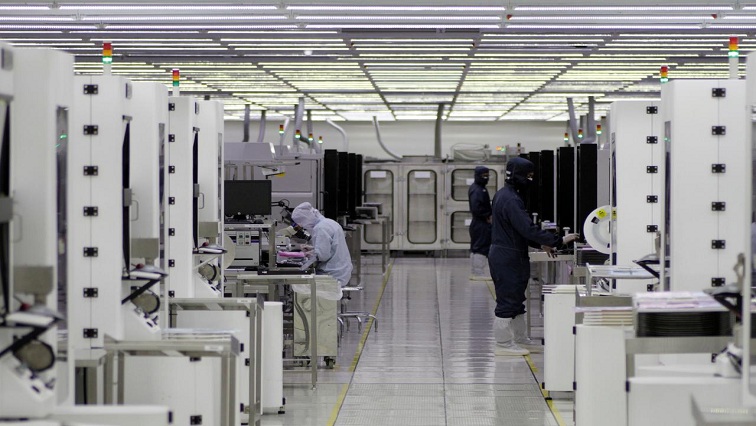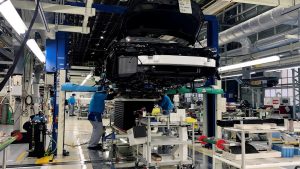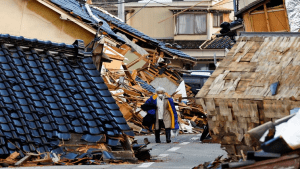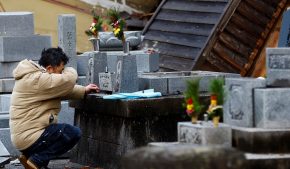South Korean chipmakers are hitting a dead end in their quest to find alternatives for key Japanese materials that have been slapped with export restrictions, raising the prospect of major disruption to their operations in the coming months.
Japan is now requiring special approval for sales of three high-tech materials, including two that are critical for chip making, to South Korea amid a deepening diplomatic dispute over compensation for forced labour during World War II.
South Korea-bound exports of the materials, including hydrogen fluoride gas and chemicals known as photoresists, now require government approval.
No approvals have been granted since the dispute broke in early July, South Korean industry sources said.
“Japan is slowly strangling our neck”, one senior official at a major South Korean major chipmaker told Reuters, requesting anonymity due to the sensitivity of the matter.
South Korean chipmakers have been plotting workarounds, such as seeking supplies directly from factories in China or Taiwan owned by their Japanese suppliers but government officials this week warned them not to go that route.
At a closed-door meeting on Monday, South Korea’s chip industry group handed out government guidelines to its members, including Samsung Electronics (005930.KS) and SK Hynix (000660.KS).
The guidance seen by Reuters cautioned that Japanese firms can rightly refuse to ship the materials from third countries and that any efforts to bypass restrictions could subject both chipmakers and suppliers to broader international trade sanctions.
“Simply put, don’t sweat over importing Japanese materials,” said one official at the Korea Strategic Trade Institute who is not authorized to speak to media.
Efforts to find alternatives to the Japanese suppliers have also struggled to make headway.
Although there have been offers from Russian and Chinese suppliers, chipmakers say that for most purposes they need Japan’s high-purity hydrogen fluoride because it helps them get high “yield” rates, which is critical to making chips profitably.
Yield is especially important in manufacturing memory chips, used in everything from smartphones to vehicles and where Samsung and SK Hynix control more than half of the global market.
“Even if we want to use products from other countries to replace Japanese, it will take months to prove them as suitable for our current manufacturing systems and performance,” a second official at a South Korean major chipmaker said, who also requested anonymity.
Major South Korean chipmakers are now testing some non-Japanese materials, South Korean deputy trade minister Kim Yong-rae told foreign media on Wednesday.
Samsung said Japanese curbs on the export of chip-making materials were blurring its business outlook as it reported a halving in quarterly profit on Wednesday.
“Even though the recent measures by the Japanese government do not ban export of materials, we are facing difficulties due to the burden of this new export approval process and uncertainties this process will bring, so the visibility is low,” Robert Yi, Samsung’s head of investor relations, said on an earnings call.
The company was reviewing various measures to minimize impact, he said, without providing further details.
The curbs on photoresists only apply to those used in producing chips based on an advanced technique known as extreme ultraviolet or EUV lithography.
However, that could hobble Samsung’s efforts to use the technology to catch up with rival Taiwan Semiconductor Manufacturing Co Ltd (2330.TW) in the booming business of building advanced chips for other companies.
“If Japan’s exports controls continue further, Samsung will inevitably face long-term consequences operating its EUV machines and a hard time meeting their production agenda,” said Park Sung-soon, an analyst at Cape Investment & Securities.
South Korean chipmakers and their local suppliers are bracing for further moves by Tokyo to drop South Korea as a preferred trading partner, which would mean tighter regulations for a broader range of chip products bound for South Korea.
South Korea’s top imports from Japan by value last year were semiconductor components and equipment ranging from silicon wafers to chip etching machines, according to data provided by Korea International Trade Association.
In 2018, South Korea bought a total $11 billion worth of semiconductor parts and equipment from Japan, accounting for nearly 20% of Japanese imports, the data shows.
The South Korean government has launched a campaign to nurture local suppliers to counter Japan’s restrictions, but analysts and officials at suppliers say the goals are unrealistic.
“On top of local suppliers’ efforts, current nationwide efforts to localize high-tech materials will continue, but we cannot replace all materials by ourselves,” said an executive at a South Korean supplier for Samsung and SK Hynix.
“It will take a long time to get there and we need to cooperate with Japan.”






